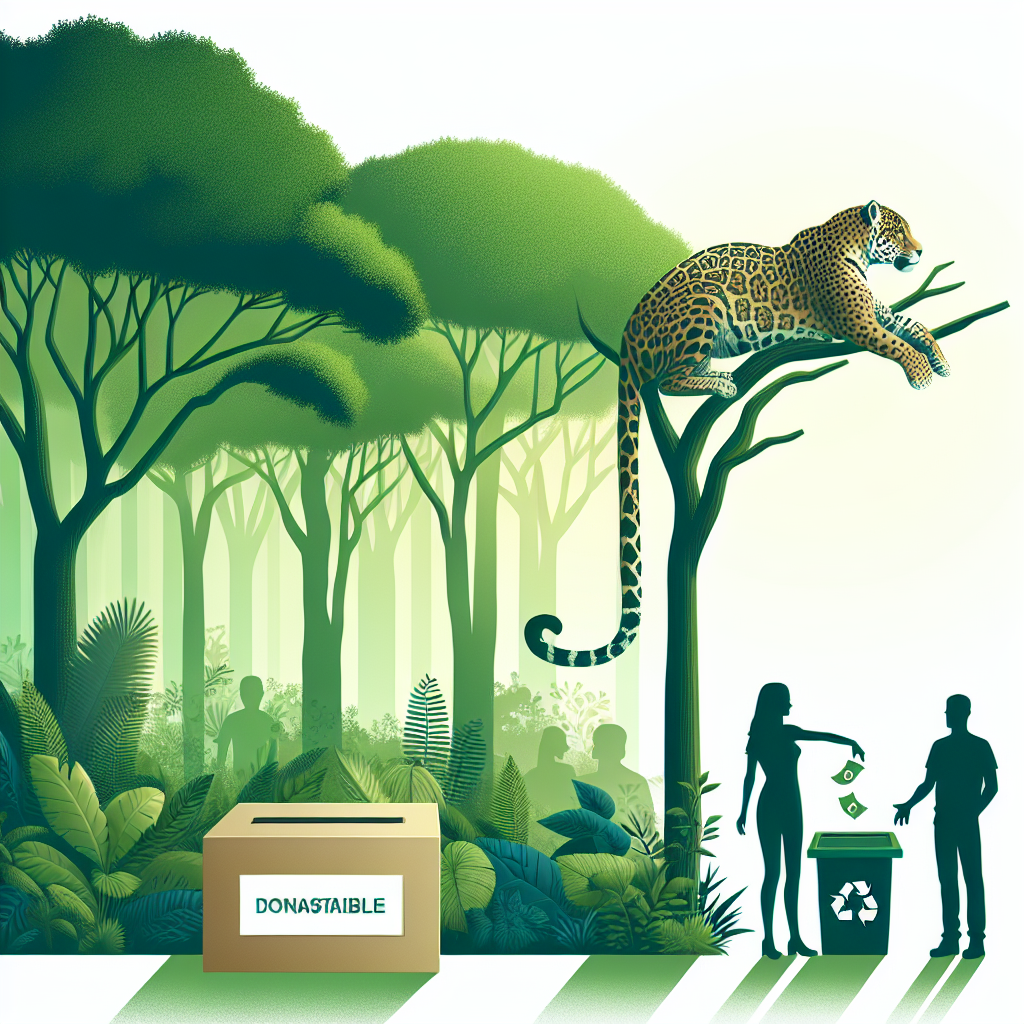Eco-Friendly Fundraising: Sustainable Practices for Jaguar Conservation Events
Understanding the Urgency of Jaguar Conservation
Jaguars, the largest cats in the Americas, play a crucial role in maintaining the balance of their ecosystems. However, habitat loss, poaching, and conflicts with humans threaten their survival. Today, conservation organizations are increasingly turning to eco-friendly fundraising initiatives to support these majestic creatures.
The Importance of Sustainable Fundraising
When planning conservation events, it is imperative to consider the environmental impact. Sustainable fundraising not only raises awareness but also exemplifies the very principles of conservation that organizations aim to promote. By implementing eco-friendly practices, organizations can set an example and attract supporters who value environmental responsibility.
Choosing a Venue
Selecting an eco-conscious venue is one of the first steps in planning a sustainable fundraising event. Here are keys to finding the right location:
- Green Certifications: Opt for venues that have certifications such as LEED (Leadership in Energy and Environmental Design) or Green Globe.
- Local Sourcing: Choose venues that prioritize local suppliers for food, decorations, and other materials.
- Transport Accessibility: Ensure that the venue is easily accessible by public transport, encouraging attendees to minimize their carbon footprint.
Eco-Friendly Catering
Food and beverages not only fuel guests but constitute a significant portion of an event’s environmental impact. To create an eco-friendly dining experience:
- Local and Organic Ingredients: Partner with local farms or organic markets to provide meals that reduce the carbon footprint linked to transportation.
- Vegetarian/Vegan Options: Offering plant-based options can significantly reduce the event’s overall environmental impact, as livestock farming is resource-intensive.
- Waste Management: Use compostable or reusable cutlery and dishes to minimize waste. Implement a recycling system to manage leftover food.
Sustainable Marketing Materials
Creating awareness around an event is essential, but the methods used should be eco-friendly. Consider these sustainable marketing practices:
- Digital Promotion: Use online platforms for promoting events—social media, email campaigns, and websites reduce paper waste significantly.
- Eco-Friendly Print: For necessary print materials, such as flyers and posters, use recycled paper or digitally printed products with soy-based inks.
- QR Codes: Utilize QR codes on physical ads to direct people to online registrations or information, minimizing paper use.
Green Activities and Workshops
Engage guests with interactive activities that echo the principles of sustainability and conservation:
- Wildlife Educational Workshops: Offer workshops centered around sustainability practices, eco-friendly living, or conservation techniques to share important knowledge with attendees.
- Nature Walks: Organize guided nature walks in nearby natural habitats to showcase local ecosystems that require protection, reinforcing the importance of conservation efforts.
- Upcycling Crafts: Host crafting stations where attendees can create items from recycled materials, emphasizing creativity and resourcefulness.
Eco-Conscious Auction Items
Fundraising auctions can be effective tools for raising money. Opt for eco-conscious items:
- Local Artisans: Feature handcrafted items made by local artists using sustainable practices, thereby supporting local economies while providing one-of-a-kind treasures.
- Experiences Over Items: Offer experiential items such as eco-tourism packages or wildlife photography sessions, which connect attendees with nature and promote conservation.
- Donation Drives: Instead of physical goods, allow attendees to donate towards a specific conservation project directly, promoting transparency and direct impact.
Partnering with Local Eco-Friendly Businesses
Fostering partnerships with local businesses can enhance your fundraising efforts while supporting the community:
- Sustainable Sponsors: Seek out businesses that align with your conservation mission, such as eco-friendly product companies, to sponsor your event.
- In-Kind Donations: Encourage local businesses to contribute goods or services, such as catering or prizes for your auction, minimizing cash outlays and strengthening community ties.
- Cross-Promotions: Collaborate with these businesses for cross-promotion, reaching their customers who may also carry an interest in conservation.
Transportation Solutions for Attendees
Mitigating transportation emissions during an event can have a substantial impact:
- Carpool Incentives: Encourage attendees to carpool by rewarding them with free entry or raffle tickets for doing so.
- Shuttle Services: Provide eco-friendly shuttle services from major transport hubs or local hotels to the event venue to minimize vehicular emissions.
- Bicycle Options: Promote cycling to the event by offering secure bike parking, possibly in partnership with local bike shops.
Offsetting Carbon Footprints
Calculating the potential carbon footprint of an event and finding ways to offset it can resonate well with eco-conscious attendees:
- Carbon Offsetting Programs: Partner with reputable carbon offset programs that plant trees or invest in renewable energy projects as a way to compensate for the event’s emissions.
- Transparent Reporting: Post-event, provide attendees with a report on the environmental impact and how their contributions assisted in offsetting the event’s carbon footprint.
Engaging Online Presence
A solid online presence enhances your fundraising event’s visibility:
- Social Media Campaigns: Create engaging content that promotes your event ideals, using trending hashtags related to conservation and environmentalism.
- Live Streaming: Broadcast portions of your event online to reach a wider audience, encouraging donations from those unable to attend physically.
- Follow-Up Campaigns: After the event, share the success stories of how the funds raised are being utilized in jaguar conservation, reinforcing trust and engagement with your mission.
Continuous Education and Awareness
Keeping the momentum going is vital after the event:
- Ongoing Content: Utilize blogs, newsletters, and social media posts to keep your audience informed about ongoing conservation efforts and how they can contribute.
- Community Involvement: Encourage participants to sign up for memberships, volunteer opportunities, or regular donation programs to foster long-term loyalty and engagement.
- Feedback Mechanisms: Encourage feedback through surveys post-event to assess what worked, what didn’t, and what eco-friendly practices attendees appreciated most for future events.
These practices not only ensure a sustainable fundraising event but also build an engaged community dedicated to protecting jaguars and their habitats. Implementing eco-friendly initiatives is essential in setting a precedent for the future of conservation efforts.







